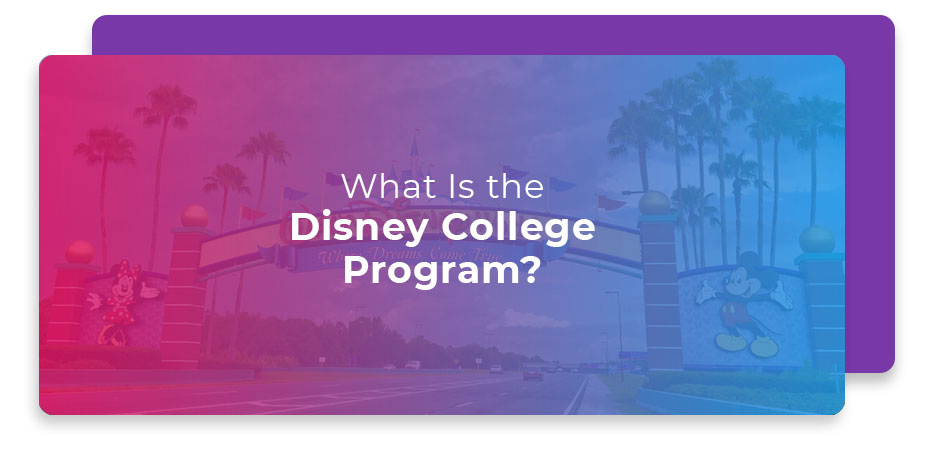You did it! After spending several weeks applying for internships, someone finally got back to you and said that your resume slaps and they’re impressed AF. (OK, they didn’t say that word-for-word, but your resume and cover letter obviously got their attention, so — nice one!)
DISCOVER INTERNSHIP OPPORTUNITIES ON TALLO
Now, the next phase of “Operation Land an Internship” can begin: convincing the hiring manager that you’re worth taking under their wing. That shouldn’t be too hard, right?
Whether you’re hoping to score a remote internship or an in-person opportunity, the single best thing you can do right now is to prepare for your interview as much as possible. To help you out with that, we’re giving you a list of common internship interview questions, along with the best answers. Good luck!
Related: How to Write a Resume for Internship
Related: Cover Letter for Internships
Understanding the Internship Interview Process
The internship interview process is an important step in securing a job opportunity. It’s important to understand the process to prepare and increase your chances of success. The interview process typically involves a conversation between you and a representative of the company to discuss the internship opportunity. The interviewer wants to assess your skills, experience, and fit for the company.
During the interview, you can expect to be asked a mix of behavioral, situational, and technical questions. Behavioral questions focus on your past experiences and how you handled specific situations. Situational questions present hypothetical scenarios and ask how you would handle them. Technical questions assess your knowledge and skills relevant to the job.
To prepare for the interview, research the company and job description. Review the job description and requirements to understand the skills and qualifications the interviewer will be looking for. Practice answering common internship interview questions, and prepare examples of your experiences and skills.
 1. Tell me a little about yourself.
1. Tell me a little about yourself.
There’s a good chance that the hiring manager will lead with this common internship interview question, so be ready with a well-rounded answer. Keep your response short and sweet (30 to 60 seconds). You can talk about what you’re currently involved in at school or work, projects you’ve completed in the past, and the reason why you’re applying for this position.
2. Why did you choose your major?
There is no right or wrong way to answer this one. Well, that’s not entirely true. You could say something like, “Because my parents wanted me to be an engineer,” which isn’t particularly inspiring. Instead, talk about what excites you about the field you’re currently studying and what skills and experiences you’ve gained from it. Then, try to connect those skills and experiences with the position you’re currently applying for.
3. Why do you want to intern at [Company Name]?
Again, don’t be too honest here. The hiring manager really doesn’t need to know that you only want this internship so you can pad your resume and use it to score a much cooler internship in the future. Do your research on the company and identify things that genuinely make you excited about this opportunity. Be specific with your answer, and try to explain how you can add value to the company.
4. What are your strengths/weaknesses?
Ah, the classic strengths and weaknesses question. So many people think they absolutely crush this question when, in reality, they totally miss the mark. Seriously, do not try to disguise your weaknesses as a strength. You aren’t fooling anyone when you try to paint your “perfectionism” as a weakness.
Treat the question as an honest assessment. Be upfront about your weakness and how you’ve learned to work around it. Flex your strengths without overexaggerating. Do it right, and you’ll come across as humble, introspective, and self-aware.
 5. Where do you see yourself in five years?
5. Where do you see yourself in five years?
You should definitely prepare for this question in advance, particularly if you’re interviewing for a paid internship. According to a NACE Foundation report, employers are more likely to make a full-time job offer to paid interns.
Related: Do Interns Get Paid?
Employers ask this question because they want to know what your career goals are and whether they can reasonably support those goals. So, think about your career path and how this position fits into your grand plan. It’s OK to be general in your response! Employers know that you can’t predict the future. Just remember to stress your interest in growing with the company.
6. Can you tell me about a time you failed or made a mistake?
When employers ask this question, what they really want to know is how you overcame a setback and if you learned from the situation. Step one: Pick a real failure. The time you got a B- on a group project because you had to do all the work isn’t a fail.
Choose a real failure story that has a growth moment. It may be helpful to structure your response using the STAR method, which stands for Situation, Task, Action, and Result. Describe the situation you were in, the task you were given, the action you took, and the end result.
7. Do you have any questions for us?
In case it’s not obvious, the answer should always be “yes.” A lack of questions for the interviewer shows that you lack curiosity and haven’t done your research on the company. Use this opportunity to ask questions you can’t find on the company’s website. For instance, you could ask about certain aspects of the company culture or how the team interacts with each other.
Showing Your Ability to Learn Quickly
Showing your ability to learn quickly is important in an internship interview. Employers want to know that you can adapt to new situations, learn new skills, and take on new challenges. To demonstrate this, be prepared to talk about times when you had to learn something new quickly.
Use the STAR method to answer behavioral questions about learning new skills or adapting to new situations. The STAR method involves:
- Situation: Set the context for the story
- Task: Explain the task or challenge you faced
- Action: Describe the actions you took to learn or adapt
- Result: Share the outcome or results of your actions
For example, you might talk about a time when you had to learn a new software program for a class project. Explain how you researched the program, practiced using it, and applied it to the project. Share the outcome of the project and what you learned from the experience.
What Employers Look for in an Intern
Employers look for several key qualities in an intern, including:
- A strong work ethic and willingness to learn;
- Good communication and teamwork skills;
- Ability to adapt to new situations and learn quickly;
- Positive attitude and enthusiasm for the field;
- Relevant skills and experiences that match the job requirements;
To demonstrate these qualities, be prepared to talk about your experiences, skills, and goals. Show enthusiasm and passion for the field, and highlight your relevant skills and experiences. Use specific examples to illustrate your points, and demonstrate a willingness to learn and grow.
Additionally, be prepared to ask informed questions during the interview. This shows that you are interested in the company and the role, and that you are willing to learn more. Some examples of questions to ask include:
- What are the biggest challenges facing the team or department right now, and how do you see this internship contributing to the solution?
- Can you tell me more about the company culture and values, and how they impact the way the team works?
- What opportunities are there for growth and professional development within the company?
Preparing to Ace Your Internship Interview
There’s a strong chance that you’ll be asked one or more of these common internship interview questions, so be prepared with well-rounded answers. But keep in mind that the interviewer may throw a curveball in there. It’s OK to pause and think about your answer before you respond! If you need a little more time, just say something like, “That’s a great question. Let me think about that.” And remember, you got this!
Popular Questions
Below are common questions we get asked about this topic.
How can I effectively demonstrate my problem-solving skills during an internship interview?
Showcasing your problem-solving skills is a critical part of internship interviews. The STAR method is a great way to frame your experiences. Situation, Task, Action, Result explains how you approached and resolved challenging situations. A great example is a difficult class project you worked on.
You could explain the challenges you faced (situation), the role you played (task), how you worked to solve them (action), and what your peers and professors said about your contribution (result). This shows your talent for problem-solving and your enthusiasm for being a contributing member of the company team.
What should I research about the company before my internship interview?
Before your internship interview, research the company’s mission, values, and recent projects. Look into their internship programs and how they align with your career goals.
Study the job description and the skills listed and plan your responses around them. You should also think about how your past experiences (working on group projects, volunteer work, etc.) can show your ability to contribute to their team dynamic.
How can I address receiving negative feedback in my internship interview?
When answering tough questions about past failures in your interview, focus on growth and resilience. Present these situations as opportunities for growth and development. Highlight how you received constructive criticism and how it improved you. Explain how you applied feedback to future situations or roles.
This shows your ability to bounce back from setbacks and your desire to grow and learn in your internship role. Hiring managers want to know that you’ll learn from your mistakes and become a more valuable intern because of them.
Image Credits
- Source: mentatdgt/Shutterstock
- Source: fizkes/Shutterstock







